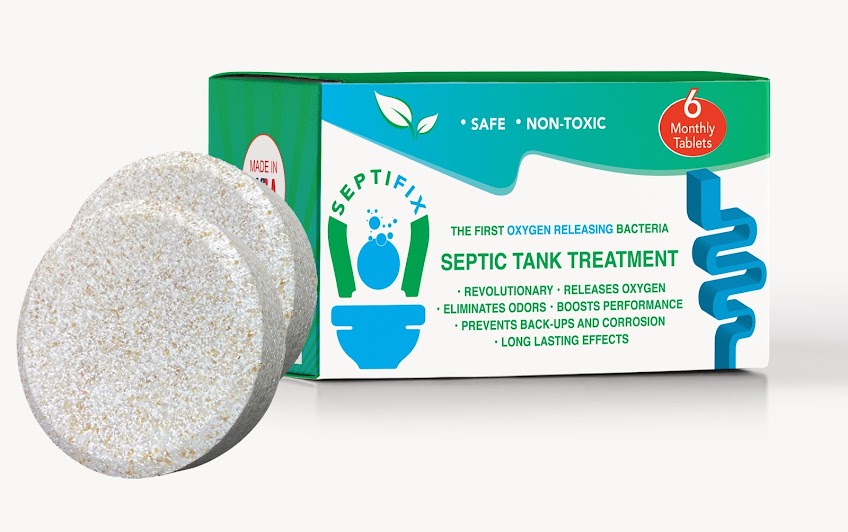Benefits of septic tanks
Removing waste is absolutely necessary, whether you do it via sewer or septic tank. A septic tank is a key component of a septic system and is used for waste water treatment. It is an underground chamber made of plastic, fiberglass, or concrete and helps treat water via biological decomposition and drainage. Compared to sewer, a septic tank is more environmentally-friendly, but that is not the only reason why you should use it.
So, what are the benefits of septic tanks? Septic tanks are economical, environmentally-friendly, low-maintenance, and long-lasting. Thanks to these benefits, they are a great option for homeowners who do not want to worry about water bills or harming the environment with wastewater.
Continue reading to find out why you should use a septic tank in detail and much more.
Call Septic Service Pros 1.855-925-0760 For Service or Request a Quote
What are the main benefits of septic tanks?
Here are the five main reasons to consider a septic tank for waste water treatment.
- Septic tanks are environmentally-friendly
Septic tanks get rid of the waste by using a natural filtering process. First, the wastewater gets filtered by your septic tank before it ends up in the drainfield or leach field. Next, the soil filters bacteria once the wastewater is out of your septic tank. This, in turn, ensures the water is completely safe for re-use. Septic tanks helps the local water tables to get naturally replenished, which augurs well for the sustainability of the wildlife.
- Septic tanks are very durable
Septic tanks are built to last decades. With proper care and maintenance, you can reasonably expect your tank to last anywhere between 20 and 40 years. If you take exceptional care of your septic tank, it may even last longer. Using a professional service for maintaining your septic tank can help keep common septic tank problems at bay and also prolong its life.
- Septic tanks are low maintenance
Not only septic tanks last a long time, but they also do not require much maintenance. Most septic tanks require pumping every three to five years. However, keep in mind that between scheduled pumping, you should consider natural ways of keeping your septic tank clean. The best way to naturally clean a septic system is by using active dry yeast. That said, in case there is a partial blockage in the septic mainline, consider vinegar instead.
- Septic tanks are a low cost solution
A septic tank can be a money-saving option. Compared to installing new pipes, a septic tank is more cost-effective. Plus, a septic tank allows you to eliminate public water bills, which reduces the cost in the long run.
- Problems with a septic tank can be fixed easily and quickly
A septic tank has its own water filtration system. That means you will not have to depend on the safety of the municipal sewer system. In case of an issue, you can call a professional septic cleaning service and have the problem fixed quickly.

Call Septic Service Pros 1.855-925-0760 For Service or Request a Quote
Why You Should Consider a Septic System?
The septic system is an environmentally-friendly method for draining waste water. The septic tank is the most important component of a septic system and is placed underground. It receives wastewater from your household through outgoing drains from sinks and toilets. Waste and gunk are separated from the wastewater inside the septic tank. The wastewater is then travels to an outgoing grid via drain field pipes. From here the wastewater gets released into the ground soil. While municipal sewer lines connect the entire sections of a city, one septic system usually serves a single residential property.
Because of the many advantages associated with the use of a septic system, many people prefer it over the municipal sewer line. The advantages of a septic tank basically come down to two things: cost and ecology. That means when you use a septic system, you will no longer have to worry about paying regular water bills or damaging the environment with waste water. Generally, it cost more to install new pipes for eliminating wastewater generated by your household via a municipal sewage system than to set up a septic tank.
Your tank can easily last a long time if you properly maintain it. Septic tanks can last for four decades or even more with regular inspection and maintenance.
There are several different types of septic tanks, with the following four being the most popular options:
- Concrete septic tank: Generally, concrete septic tanks last longer than other types of tanks. This type of septic tank can last four decades or even longer.
- Steel septic tank: These tanks usually last for 25 years. That said, not many homeowners opt for a steel septic tank because it is prone to rust.
- Fiberglass septic tank: Fiberglass septic tanks are lighter and are neither prone to rust nor to cracks.
- Aerobic septic tank: While aerobic tanks are costlier to install than other septic tanks, the upside is that they provider better efficiency. The aerobic septic tanks run on electricity.
How to Take Good Care of Your Septic Tank?
Here are some tips to help you take good care of your septic system and prolong its life.
- Minimize the use of water softeners: Chemicals in water softeners can damage bacteria in your tank, reducing its efficiency to treat waste water.
- Avoid pouring grease, oils, and fats in the water drainpipe: All of these things make life harder for bacteria in the septic tank. As a result of which, the waste in the tank will not get broken down efficiently.
- Fix issues with the plumbing: In case there is any leak in the plumbing line, a large quantity of water will get drained into the tanks, which will impacts its efficiency.
- Be careful with medicines and toilet paper: You should not flush medicine and toilet paper down the drainage pipe, since these things are not biodegradable.









